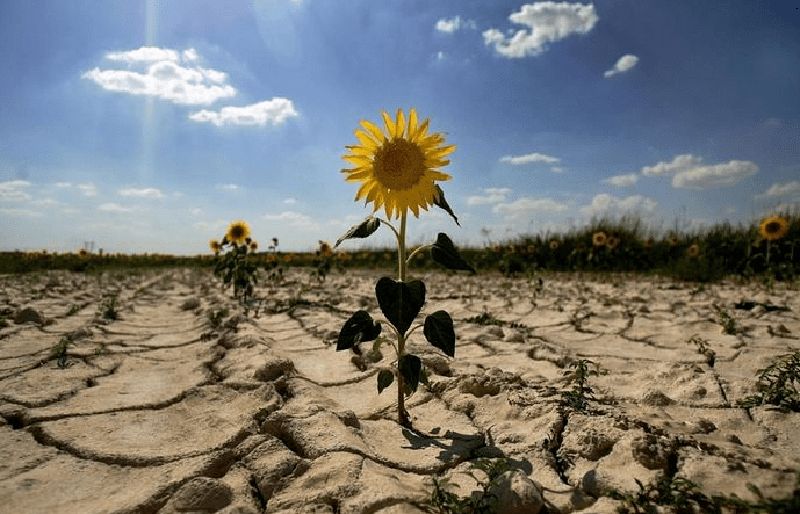Ukraine,
food crisis,
war,
food sales
Early signs of food crisis: the EU restricts sales of food per customer and «hunger riots» are possible in poor countries

The war in Ukraine and selling flour «a kilo per customer» in the EU are the links of a chain, aren’t they? The world community does not seem to seriously take forecasts like «future famine» so far. The analysts are predicting «hunger riots» in poor countries. The price of bread in the world is the matter of duration of military activities in Ukraine.
Antonio Guterres, UN Secretary General has predicted famine and collapse of the global food system. He wrote about it on his Twitter page:
Out of reach
The situation in agricultural markets has been changing faster than it was expected. During the first week of the war on the territory of Ukraine, the cost of food wheat reached $ 500/t.
«Ukraine and russia combined account for the majority of world cereal exports. Ceased exports from the countries will negatively impact the global food security and prices. At the beginning of last week, May futures at CBOT increased sharply to $ 470/t. Clearly, there appeared to be some speculation and later the prices rolled back, but still exceed $ 400/t,» Mariya Kolesnyk, deputy director of ProAgro Group, said.
Not every country can afford such expensive imports. Besides, the shipments are limited. Egypt, Yemen, Israel, Indonesia, Bangladesh, Ethiopia, Libya, Lebanon, Tunisia, Morocco, Pakistan, Saudi Arabia and Turkey are the countries which are dependent on cereal imports.
We still remember how the revolutions in Egypt and Tunisia began, grain prices being the main trigger", Maria Kolesnik said.
Rich countries at risk
The food situation in the world is getting more alarming, and this is just the beginning. Ukraine complied with its most export obligations before the war. According to ProAgro Group, in February, 18 million tons of wheat were exported, and the big question is what next season will be. The EU countries have already been experiencing the early signs of food crisis.
The world’s carryover stocks are insufficient, half of them being concentrated now in China and unavailable to the world," said Mariya Kolesnyk.
As the analysts of Ukrainian AgrariCouncil report, in 2021/2022 MY world export of sunflower oil amounted to 10.9 million tons, including 5.4 million tons exported by Ukraine. Therefore, it is not surprising that this product is disappearing from the shelves of the stores, while Ukraine has the surplus sunflower oil.
European vegetable oil association, FEDIOL, has already provided oils intended for biodiesel production to the food market because of the ceased shipments from the Black Sea region.
The sooner the war ends, the less crop loss can be expected
Ukraine is forced to start sowing campaign with great risks. Today this is not only a matter of internal food security but also responsibility to the world. What areas will remain unsown and what amount of crop will be lost in the current growing season in Ukraine?
«Considering the problems faced by Ukrainian farmers, it is hard to predict the sowing campaign in Ukraine. In some regions — central and western — we are more optimistic. As for other regions, forecasts are rather sad. That is why the Ukrainian AgriCouncil (UAC) warns of the looming food crisis on all possible European media platforms», Andriy Dykun, chairman of the UAC, said.
Forecasts of crop losses range from 20% to 50%, but this a matter of the duration of hostilities.
It’s difficult to assess the areas which will remain unsown, but the frontline areas definitely cannot be taken into account for sowing. Even if the war stops tomorrow, it won’t be possible to plant there due to poor condition of the fields, mining etc.," Mariya Kolesnyk said.
The corn belt of Ukraine in the area of intensive hostilities.
«Ukraine's winter wheat yields could fall by 15% compared to recent years if fertilizers aren’t applied now. As for corn, planting is under threat. In 2021, the largest corn area were in Poltava region — 643 th. ha, Chernihiv — 568 th. ha, Sumy — 461 th. ha and Kharkiv region — 300 th. ha. In many regions of Ukraine’s corn belt, active military operations are conducted,» Olena Neroba said.
Under these conditions, Ukrainian farmers will conduct sowing campaign with great risks.
Despite the danger, most farmers are about to conduct sowing campaign. In coming weeks, farmers will start sowing spring crops, such as corn and sunflower despite tough conditions. Then, there appears a question of global food security but this is no longer a question to Ukraine. Take at least field mining — we will deal with this problem in the coming few years. Besides, the Russian invaders deliberately target Ukrainian farm machinery and destroy farms. The world must be more active in defending Ukraine and not stand aside.
Oksana Korol, Agravery.com